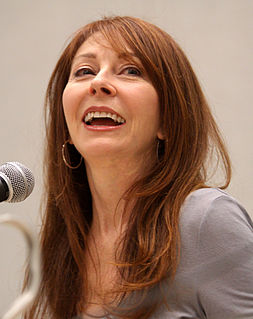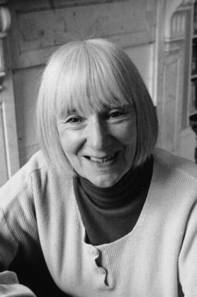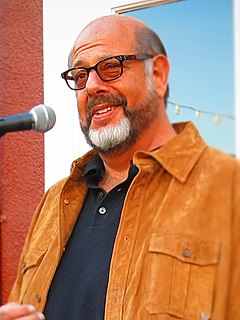A Quote by Lorrie Moore
This lunge at moral fastidiousness was something she'd noticed a lot in people around here. They were not good people. They were not kind. But they recycled their newspapers!
Related Quotes
Prophet just means intellectual. They were people giving geopolitical analysis, moral lessons, that sort of thing. We call them intellectuals today. There were the people we honor as prophets, there were the people we condemn as false prophets. But if you look at the biblical record, at the time, it was the other way around. The flatterers of the Court of King Ahab were the ones who were honored. The ones we call prophets were driven into the desert and imprisoned.
A lot of people say that Eleanor Roosevelt wasn't a good mother. And there are two pieces to that story. One is, when they were very young, she was not a good mother. She was an unhappy mother. She was an unhappy wife. She had never known what it was to be a good mother. She didn't have a good mother of her own. And so there's a kind of parenting that doesn't happen.
No one else noticed, or cared. It was just something they did. Taking other people’s livestock. Other people’s lives. She watched the soldiers, hating them. They were different in so many ways, white and black, yellow and brown, skinny, short, tall, small, but they were all the same. Didn’t matter if they wore finger-bone necklaces, or baby teeth on bracelets, or tattoos on their chests to ward off bullets. In the end, they were all mangled with battle scars and their eyes were all dead.
I grew up in London, one of four children. We were a very loud family, not a lot of listening, plenty of talking. My mum was a hearth mother: she loved to gather us all around her - Sunday lunches were a big thing. She was very good at thinking on her feet - people used to say she should go into politics.
Veronika had noticed that a lot of people she knew would talk about the horros in other people's lives as if they were genuinely concerned to help them, but the truth was that they took pleasure in the suffering of others, because that made them believe they were happy and that life had been generous with them
Patti [ Scialfa] was an artist and a musician and she was a songwriter. And she was a lot like me in that she was transient also. She worked busking on the streets in New York. She waitressed. She had - she just lived a life - she lived a musician's life. She lived an artist's life. So we were both people who were very uncomfortable in a domestic setting, getting together and trying to build one and seeing if our particularly strange jigsaw puzzle pieces were going to fit together in a way that was going to create something different for the two of us. And it did.
Pauline kept a scrapbook into which she pasted important articles that she had cut out of the newspapers. These were about the courageous deeds that had been done by people even if they only had one leg or couldn't see or had been dropped on their heads when they were babies. 'It's to make me brave,' she'd explained to Annika.
We used to have adults who set standards, moral standards, cultural standards, legal standards. They were better than we were. They gave us something to aspire to. They were people that we described as having dignity and character. That's all gone now, particularly the upper levels of the Democrat Party. There isn't any of that kind of decency, dignity, character, morality.
You get stared at the whole time. I first noticed that when I was about 13. I was very shy. Being considered beautiful, I always felt that people were waiting for something more. I imagined you were supposed to have an intellectual ability - and I'm making no claims here - proportional to your supposed good looks.
I was always around people who were in the business from the time I was an absolute baby. I grew up in New York City, and my parents, my sister, and I had a house on Fire Island, and they were part of a set of people that were all close and friendly, most of whom were involved in show business in one regard or another. So it was always familiar to me, and I kind of enjoyed it.
For the first time in her life Granny wondered whether there might be something important in all these books people were setting store by these days, although she was opposed to books on strict moral grounds, since she had heard that many of them were written by dead people and therefore it stood to reason reading them would be as bad as necromancy. Among the many things in the infinitely varied universe with which Granny did not hold was talking to dead people, who by all accounts had enough troubles of their own.






































